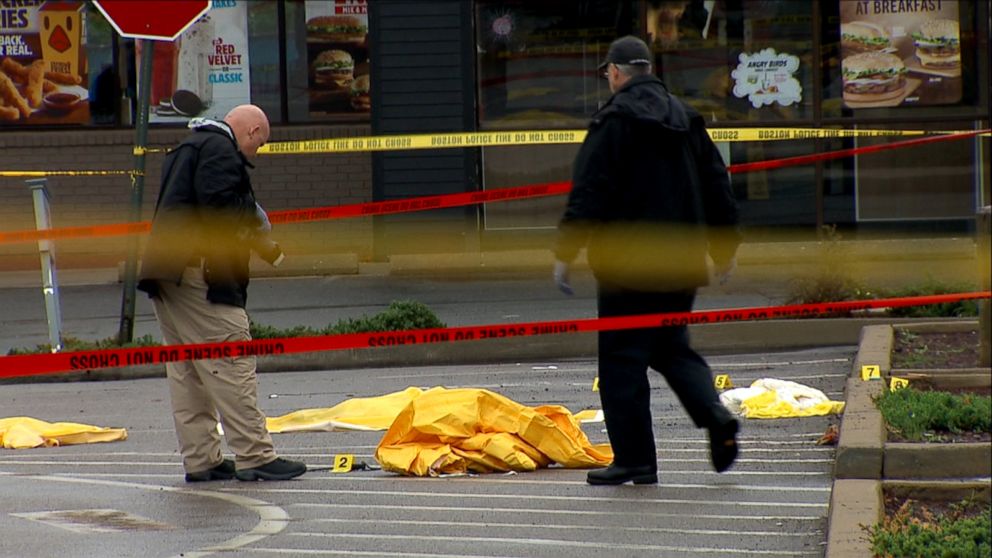Boston Terror Suspect Shot by Cop Made Threats Against Police, Sources Say
The suspect pulled a "military-style knife," police said.
— -- A terror suspect who was shot and killed by a Boston cop Tuesday was under 24-hour surveillance because he had made statements indicating he desired to attack police officers, sources briefed on the case told ABC News.
The FBI knew Usaama Rahim was armed and potentially dangerous and moved on him Tuesday morning when it appeared the threat he posed to uniformed officers in the Boston area had somehow increased, the sources said. He had been under surveillance by the FBI's Joint Terrorism Task Force, ABC News has learned.
In a related arrest, Massachusetts State Police and Boston police arrested a man in nearby Everett, later identified as David Wright, who had also allegedly expressed an interest in taking up the ISIS call to attack police.
The FBI and Rhode Island State Police conducted a related search of a location in Warwick, Rhode Island, but no arrests were made there.
The FBI had been tracking Rahim, 26, for several weeks, and authorities are looking into whether he may have been radicalized by ISIS propaganda online, law enforcement sources said.
Such radicalization "represents the newest element of the terrorist threat facing the country, where we have individuals who affiliate with terrorist ideologies but do not coordinate their operational activities with terrorist organizations," said John Cohen, a former top Homeland Security official who is now an ABC News contributor.
"This poses the most significant counter-terrorism challenge" for U.S. authorities since the 9/11 attacks, Cohen added.
An officer and an FBI agent approached Rahim a little after 7 a.m. Tuesday in the parking lot of a CVS in Roslindale, Massachusetts, police said. The suspect then "came at the officers" with a "military-style knife," police said.
Surveillance video from the scene shows officers "retreating ... and kept retreating," trying to get Rahim to drop the weapon, but he wouldn't, Boston Police Commissioner William Evans said at a news conference. So when the officers' lives were in danger, they discharged their weapons, Evans said.
Law enforcement wanted to question Rahim after receiving "some terrorist-related information," according to Evans. Specifically, Boston police and the FBI wanted to talk with Rahim "about his intentions in some other matters that we turned up," said Vincent Lisi, the head of the FBI's Boston field office.
Lisi wouldn't say if other suspects tied to Rahim were still on the streets, but he insisted, "We don't think there's any concern to public safety out there right now."

Police in Everett, Massachusetts, just outside of Boston, made an arrest in connection with the investigation involving Rahim, authorities said, noting the arrest was made at the request of the Joint Terrorism Task Force.
Additionally, there are a number of related searches in the area that are related to the investigation, sources told ABC News.
Early-morning approaches by law enforcement like the one that led to Rahim's death are unusual, according to Steve Gomez, the former head of FBI counter-terrorism efforts in Los Angeles.
The move may have been intended as "a disruption" to put Rahim "on notice" that authorities -- without sufficient evidence to build a legal case -- are watching him, or police and FBI may have been trying to obtain his cooperation in a related investigation, said Gomez, an ABC News consultant and contributor.
Either way, it all seems representative of what is going on throughout the FBI, which is aiming to take proactive steps even in "marginal types of terrorism cases" where it's too soon to tell exactly what suspects are up to -- but the FBI doesn't want to take any chances, according to Gomez.
Rahim died at Brigham and Women's Hospital, police said.




